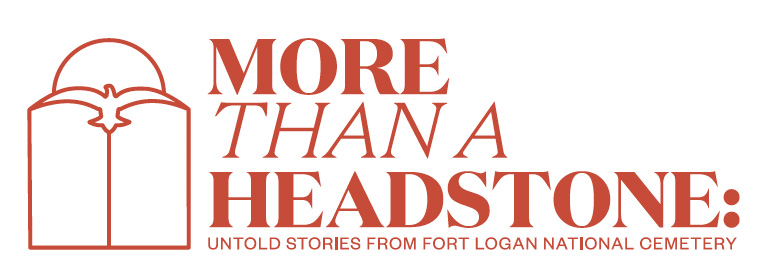She Cared about Each Person
by Kathlene Ward
Joanne Conte at work, photo courtesy of the Denver Post
Download the Sisters in Service map
This downloadable map will take you straight to the grave of Joanne Conte along with others in the Sisters in Service category.
Joanne Marie Conte
October 18, 1933-January 27, 2013
Joanne Marie Conte, a woman famous for being the first openly transgender city councilwoman, deserves recognition for playing a key role in the Korean War and for her exemplary dedication to public service afterward. She served with dignity and persevered against gender discrimination. Conte was born on October 18, 1933 in Rochester, New York, under the name Joseph Baione.[1] Her family moved to Arvada, Colorado in her adolescence, where she attended Arvada High School.
Upon graduating, she enlisted to serve as a Morse code operator for the Army and Air Force during the Korean War.[2] Morse code is a communication method that allows people on the ground to give direction to those in the air. The Air Force, working as an independent branch, was only three years old in 1950 when North Korea invaded South Korea.[3] Because the air force was so new, Joanne Conte served at an incredibly powerful moment in Air Force history. Three days after President Truman endorsed involvement with the Korean conflict, he also authorized Air Force involvement.[4] As a Morse code operator, Conte assisted in maintaining communications with those in the air, a job that is essential to Air Force success.
After leaving the military, Conte became captivated by political activism and dedicated the rest of her life to public service. She attended the University of Colorado, where she received a Bachelor’s degree in philosophy with honors and eventually received a Master’s degree in political science.[5] In 1973, Conte legally changed her name from Joseph Baione to Joanne Conte.[6] Conte continued her passion for the political realm, working from the 1980s to the early 1990s in campaigns and organizations, calling herself “a raging activist.”[7] From 1991 to 1995, Conte worked as a councilwoman on the Arvada City Council, where she fought for increasing government transparency. A friend explained that, “She wanted people to be advised so that they could participate in government decisions.”[8] As a public figure she also stood for regulation on neighborhood parking disturbances and fought against the creation of a trash transfer station in southeast Arvada.[9]
Following 1993, Conte had to fight to keep her place in government. In 1993 she came out to the public as transgender despite threats in the wake of a news article outing her, printed on the front page of the weekly newspaper Westword.[10] In the face of a smear campaign based on her gender identity, she lost her seat on the Council in re-election. Conte went on to work as a political science professor at the University of Colorado and in 1994, Conte also attempted to run for Colorado House of Representatives as an Independent. At first she was blocked from the ballot because of her status as an Independent, but Conte continued to fight for her chance in the Colorado Supreme Court case Conte v. Meyer. She eventually won 5-2 and was able to run and have her name on the ballot.[11] She did not end up winning the election and instead began working in public radio, first for KOA and then KGNU, as an investigative host where, according to her, she was able to cover, “stories on Jefferson County issues and how issues in Arvada relate to Boulder."[12] She covered topics like the DARE program and affordable housing.
She continued her support to her local community of Arvada until her passing on January 27, 2013.[13] It was said by those close to her that Conte was “larger than life” and that “she wanted to do well at whatever she tried.”[14] Not only that but it was said that Conte “had a wonderful sense of humor. She was just an extremely kind person, and she cared about people. Her life’s work is found in the hundreds of people she served over the years, especially people who didn’t feel like they had a voice. She cared about each person individually, and she wanted to help them, and that’s really her legacy.”[15] Joanne Conte’s story is one of resilience and strength, traits common of female service members. Her work as a Morse code operator and her lifelong dedication towards the public good are both things that fully embody what it means to be a female veteran.











